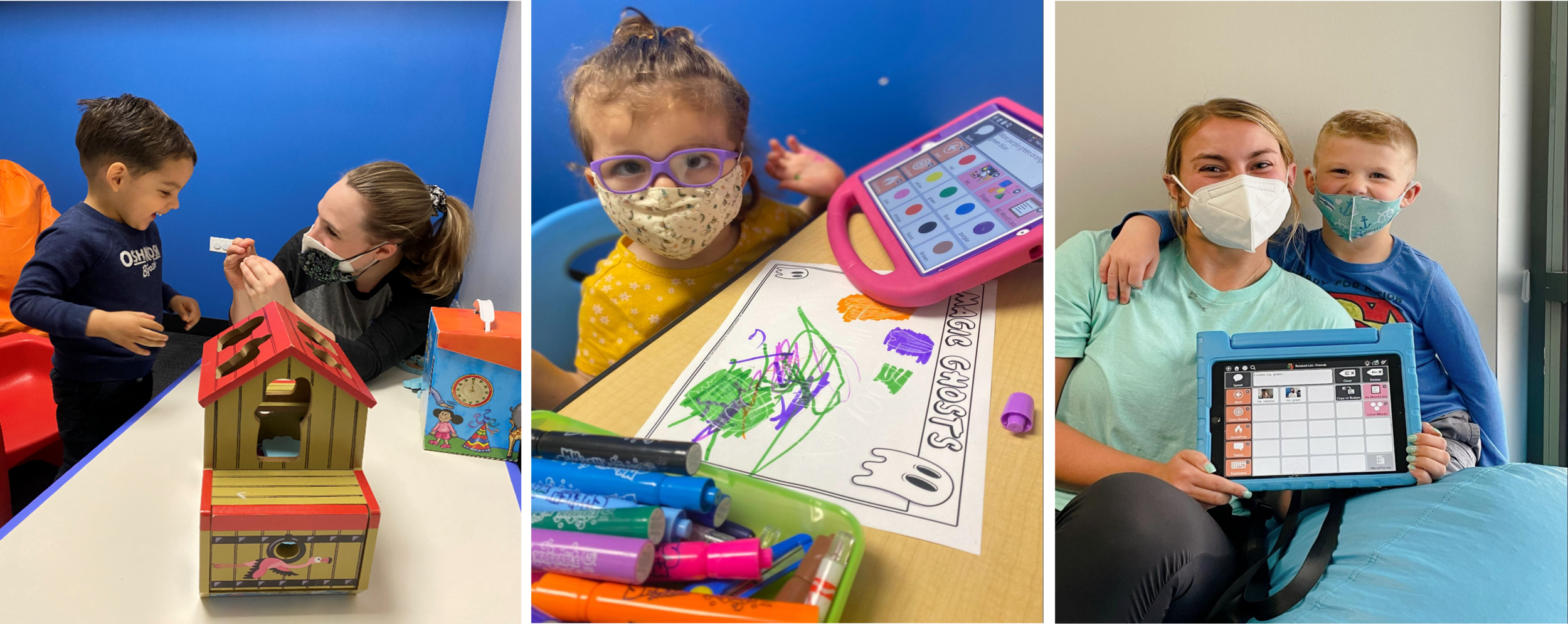Exactly How a Speech Pathologist Can Assist Improve Communication Skills
Effective communication is a keystone of individual and professional success, yet many individuals encounter difficulties that prevent their ability to share themselves plainly. A speech pathologist is furnished to resolve these barriers via targeted evaluation and treatment techniques tailored per individual's demands. By employing evidence-based healing techniques, they not only function to boost speech and language conditions however also enhance overall communicative skills. Comprehending the multifaceted role of a speech pathologist discloses how their competence can change lives, inviting a more detailed assessment of the specific techniques and results connected with their technique.
Understanding Interaction Disorders
Comprehending communication conditions is vital for identifying just how they influence people' ability to share themselves and involve with others. Interaction disorders incorporate a vast array of problems that influence speech, language, and social interaction, frequently impeding efficient communication. These conditions can arise from numerous factors, including neurological problems, developing hold-ups, physical disabilities, or emotional concerns.
Speech problems might materialize as problems in voice, expression, or fluency production, impacting just how words are obvious or spoken. Language disorders, on the various other hand, include difficulties in understanding or using language, which can hamper both verbal and non-verbal interaction. Social interaction problems are characterized by troubles in the practical facets of communication, such as taking turns in conversation or understanding social hints.
The repercussions of interaction disorders are extensive, influencing not just the individual's ability to convey emotions and ideas yet also their social partnerships, instructional chances, and overall top quality of life. Recognition of these disorders can cultivate compassion and assistance, motivating effective techniques for communication and involvement. Recognizing the intricacies of communication conditions is a critical action in the direction of advertising inclusivity and resolving the demands of those affected.
Function of a Speech Pathologist
Speech pathologists often play an essential role in identifying and treating communication problems, utilizing a series of evidence-based strategies tailored per person's needs. These specialists function with people across the lifespan, from youngsters with speech delays to grownups recovering from strokes or distressing brain injuries. Their know-how incorporates a range of communication problems, consisting of articulation, fluency, language, and voice conditions.
In healing settings, speech pathologists make use of structured treatments created to boost interaction abilities. They may apply techniques such as speech workouts, language games, and social communication training to assist in renovations in responsive and expressive language abilities. Speech Pathologist. Additionally, they educate customers and their family members about efficient interaction strategies and flexible techniques to navigate daily communications
Beyond straight treatment, speech pathologists team up with other health care caretakers, teachers, and specialists to guarantee a detailed method to therapy. They advocate for customers by giving resources and assistance, enabling individuals to achieve their interaction objectives and enhance their overall lifestyle. As professionals in the field, speech pathologists are essential in promoting effective communication, advertising self-reliance, and enhancing social involvement for those with communication difficulties.
Analysis and Diagnosis Process
The assessment and diagnosis procedure performed by speech pathologists commonly includes a detailed assessment to determine communication problems properly. This process starts with a detailed case background, where the medical professional collects pertinent details about the person's clinical, academic, and developing background. Understanding the context of the individual's interaction problems is necessary for an accurate medical diagnosis.
Adhering to the situation background, speech pathologists utilize casual assessments and standardized tests to assess various facets of communication, including speech audio manufacturing, language understanding, meaningful language, and social interaction abilities. These analyses are customized to the individual's age and particular worries, providing useful data for evaluation.
Observation is additionally a critical element of the analysis procedure, as it permits the clinician to see direct how the individual interacts in natural settings. Additionally, meetings with household participants and educators can give understanding right into the person's communication challenges throughout different settings.
When the analysis is complete, the speech pathologist synthesizes the findings to determine a medical diagnosis and suggest appropriate interventions. This thorough analysis process makes sure that individuals receive targeted assistance customized to their distinct interaction requirements, laying the structure for reliable restorative strategies.
Healing Techniques and Strategies
Various restorative strategies and approaches are used by speech pathologists to resolve a range of communication conditions properly. One commonly used method is expression treatment, which concentrates on fixing speech appears through repetition and aesthetic cues. This method is especially advantageous for individuals with speech sound conditions.
One more effective approach is language intervention, which enhances both responsive and expressive language abilities. This may include interactive tasks that promote vocabulary development, sentence framework understanding, and conversational abilities. In addition, speech pathologists commonly make use of social skills training to enhance practical language abilities, allowing people to navigate social interactions a lot more page efficiently.
Fluency shaping and stuttering alteration methods are specifically developed to help those experiencing fluency disorders. These techniques assist clients create smoother speech patterns and manage the emotional and physical components of stuttering.
In addition, different and augmentative interaction (AAC) systems are employed for people with severe communication disabilities. These systems, which can consist of gestures, symbols, or electronic devices, provide vital assistance for efficient communication.
Benefits of Speech Therapy

Furthermore, speech treatment can aid in creating essential listening and understanding skills, fostering better interaction in conversations. Individuals with cognitive-communication conditions can likewise benefit, as treatment concentrates on reinforcing memory and analytic capacities, important for effective interaction.
An additional essential aspect is the emotional support given throughout therapy sessions. Speech pathologists produce a secure atmosphere, motivating patients to get rid of stress and anxiety and stress related to their interaction concerns. This assistance can lead to boosted self-confidence and overall psychological well-being.
Additionally, early treatment through speech treatment can prevent more problems, ensuring that people reach their complete communicative capacity. On the whole, the benefits of speech treatment extend past mere speech enhancement, favorably impacting numerous dimensions of life for those impacted by interaction difficulties.
Verdict
In summary, speech pathologists play a vital role in dealing with interaction disorders with analysis, medical diagnosis, and tailored restorative treatments. By employing evidence-based methods, these specialists enhance individuals' speech and language abilities, fostering enhanced quality, fluency, and social interaction skills. The benefits of very early treatment emphasize the significance of seeking help from speech pathologists, as their knowledge can dramatically boost communicative potential, ultimately resulting in higher success in both professional and individual rounds.

Speech pathologists frequently play a crucial role in dealing with and diagnosing communication problems, employing a variety of evidence-based methods customized to each individual's needs. As professionals in the area, speech pathologists are important in promoting reliable interaction, promoting independence, and improving social involvement for those with interaction obstacles.
